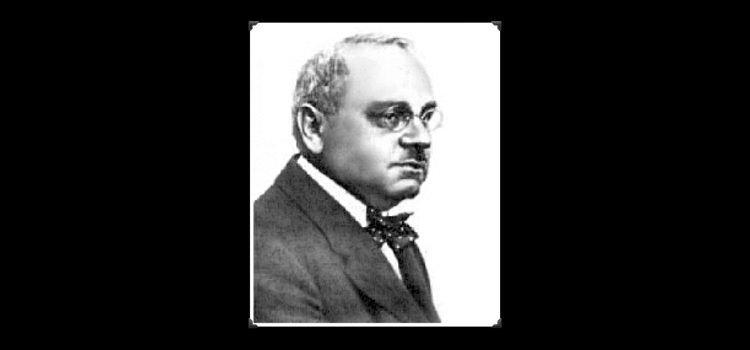

This article is an excerpt from the Shortform book guide to "The Courage to Be Happy" by Ichiro Kishimi and Fumitake Koga. Shortform has the world's best summaries and analyses of books you should be reading.
Like this article? Sign up for a free trial here.
What is Adlerian psychology, and how does it relate to happiness? Can understanding this approach help you improve your life?
Adlerian psychology focuses on two main goals: independence and community participation. These goals form the foundation of Alfred Adler’s concept of happiness. By exploring these ideas, you can gain insights into personal growth and fulfillment.
Continue reading to discover how Adlerian psychology might transform your perspective on life.
Adlerian Psychology
Throughout their book, The Courage to Be Happy, Kishimi and Koga (using the Youth and the Philosopher as their mouthpieces) discuss numerous topics related to Adlerian psychology. So, what is Adlerian psychology, exactly? They explain that it has two main goals: independence and the ability to participate in your community. Together, those two goals are the foundation of Adler’s concept of happiness. Therefore, every lesson the Youth learns supports one or both of those goals.
(Shortform note: Alfred Adler (1870-1937) was an Austrian medical doctor and psychotherapist. Initially a close colleague of Sigmund Freud, Adler eventually broke away and established his own school of thought, which he called Individual Psychology. This school emphasizes the importance of understanding people as whole individuals—in contrast to, for instance, Carl Jung’s theories about the various archetypes that exist in a person’s subconscious. Adler also introduced several concepts that are still influential in modern psychology, such as the inferiority complex, which suggests that feelings of inferiority often drive human behavior and can lead people to overcompensate by acting competitively or aggressively.)
Goal #1: Independence
The first goal of Adlerian psychology is independence. Kishimi and Koga say that everyone has an innate drive to overcome their natural helplessness through self-improvement. This is evident from a very early age—for example, children often insist on doing things for themselves as soon as possible.
The authors also say that this desire for independence is actually a desire for freedom. What people really want is the ability to choose their own course of action and carry it out without needing anyone else’s help or approval.
We’ll look at two crucial strategies for developing your own sense of independence and freedom. First, we’ll discuss the importance of focusing your efforts on things that you can control and not letting others take that control away from you. Second, we’ll explain Adler’s theory that you can become the person you want to be at any time: By changing how you think about your past, you can change who you are in the present. Finally, we’ll examine some common obstacles that prevent people from becoming truly independent.
Focus on Your Own Tasks
One fundamental concept of Adlerian psychology that Kishimi and Koga discuss is separation of tasks. According to this idea, every person has their own tasks to devote their attention and energy to. It’s not our place to interfere with anyone else’s tasks; likewise, we shouldn’t let other people interfere with ours.
The authors say that, to determine whether a task belongs to you, you should ask yourself two questions:
- Is the outcome of this task in your control?
- Are you directly affected by the outcome of this task?
If the answer to both questions is yes, that’s a task you can claim. If not, then it belongs to someone else.
For instance, choosing where you live as an adult is your task. You’re the one who has to build a life wherever you choose to be, and you must accept the benefits and drawbacks of living in that place. However, the people around you may try to influence you as you make that decision. Maybe your parents don’t want you to move somewhere too far away, or your friends tell you the city you’re moving to is too expensive. Listen to your loved ones and consider what they say, but remember that where you’ll live is ultimately your decision—don’t let others interfere with your task of making that choice.
On the other hand, dealing with their feelings about you moving away is your loved ones’ task, not yours. This is because you can’t control how other people feel, and their feelings only affect them; the answer to both of the previous questions is “no,” and therefore this is not something you can take responsibility for.
Free Yourself From Your Past
Next, Kishimi and Koga discuss the Adlerian idea that the events of your past don’t have the power to define who you become. Instead, it’s how you think about past events that influences who you are today. Therefore, you can decide who you want to be at any point in your life by changing how you frame your view of the past.
Many people justify the current version of themselves by holding on to a negative view of their past. They believe that they are the way they are because of unfortunate things that happened to them, and they use those events as an excuse not to improve. However, your past only exists to the extent that you give meaning to it, and it doesn’t need to influence how you live your life now.
Obstacles to Independence
In addition to discussing ways to develop your sense of independence, Kishimi and Koga discuss some common obstacles that may stop you from doing so.
The first barrier to independence is a lack of courage. This often stems from the fear of making bad decisions or failing in your endeavors, which can prevent you from taking charge of your own life. To overcome this barrier, face up to your fears and start taking responsibility for your situation and your actions. As you start this process, the authors urge you to remember that mistakes are a natural part of the learning process, and failure is an opportunity for growth and improvement; view these as opportunities you can embrace, rather than as shameful outcomes to avoid at all costs.
Another obstacle to independence is a lack of will. Kishimi and Koga write that many people find it easier to let others make decisions for them and simply do as they’re told. However, this approach hinders their personal growth and the development of critical decision-making skills.
To overcome this obstacle, the authors suggest gradually taking on more responsibility and practicing making decisions for yourself, even if they’re small ones at first; for instance, you don’t need to embark on a new career path right away, but you might start by taking the initiative at your current job and making a decision that you’d normally clear with a supervisor first.
Finally, Kishimi and Koga say that self-centeredness is another significant barrier to self-reliance. This is a barrier that we all start building in infancy; babies are self-centered out of necessity, since crying for help is their only tool for survival. However, some people never emotionally grow beyond this self-centeredness, even after physically maturing and becoming capable of taking care of themselves. As a result, they continue to expect others to cater to their needs and desires throughout their lives—the exact opposite of independence. You can overcome self-centeredness by developing a strong sense of community.
Goal #2: A Sense of Community
While independence is crucial for self-esteem and overall well-being, it’s only one of the two goals of Adlerian psychology. Next, Kishimi and Koga explain Adler’s concept of Gemeinschaftsgefühl, which translates to “community feeling,” or sense of community.
The authors say that humans are social by nature, so interpersonal relationships are a fundamental part of life and happiness. In fact, Adler taught that all hardships and joys stem from our interactions with other people. Therefore, the quality of our relationships shapes our well-being and overall life satisfaction.
We’ll discuss why contributing to your community can boost your happiness, why you should offer respect freely to everyone (and what “respect” really means), and the three fundamental types of relationships in Adlerian psychology.
Contribute to Your Community
The authors start by saying that contributing to your community is essential for your personal happiness and fulfillment. Adler taught that happiness comes from feeling useful; that feeling, in turn, helps you develop a sense of worth and belonging in your community, which are crucial for your overall well-being.
However, Kishimi and Koga also say that value can only exist in relation to others. Therefore, it’s not enough to just try to be productive—you have to be useful to someone else in order to feel valued. In other words, no matter how much you accomplish, it won’t be satisfying if it’s only for your own benefit.
With that said, Adler taught that you don’t always need to perform concrete acts of contribution to experience this sense of belonging and worth. You can improve the lives of those around you simply by participating in your community.
Respect Others for Who They Are
Another important aspect of Adlerian psychology that Kishimi and Koga highlight is the free offering of respect to others. In Adlerian terms, respect that’s freely given starts by recognizing someone for who they are as an individual.
Once you recognize someone’s individuality, you don’t try to alter who they are—instead, you accept them in their current form with no stipulations. If you try to manipulate someone to make them be different, you’re not showing them respect. It may help if you consider “respect” to be synonymous with “trust.” The authors say that respecting someone means you have complete confidence in them, and therefore you don’t feel any need to change or manipulate them.
The authors also say that respect (or trust) is a choice that you make based on your willpower and courage; respect comes from within you, not from the other person’s character or abilities. This means that you can offer respect to all people: loved ones, passing strangers, coworkers, and people you’ll never meet.
Nurture Your Fundamental Relationships
To strengthen your sense of community, Kishimi and Koga say you must nurture three fundamental relationships: working relationships, friendships, and loving relationships.
Fundamental Relationship #1: Working Relationships
You can help others simply by existing and participating in your community, but what does that really mean? Adler identified three fundamental life tasks that each person needs to undertake in order to find happiness, but these “tasks” really describe different types of relationships with the people in your community. The first of these fundamental relationships is working relationships.
Kishimi and Koga explain that society functions most effectively when individuals focus on their own strengths and areas of expertise. This concept is known as division of labor. For example, when you need a new car, you don’t attempt to build one yourself; instead, you buy from a manufacturer that specializes in automotive production. This allows you to focus on your own job and expertise—the ways you’re best able to contribute to society—while benefiting from the skills and knowledge of others.
Kishimi and Koga also say that all professions, regardless of their prestige or salary, are valuable to society. If a job exists, it means there’s a societal need for that role. Therefore, there’s no difference in importance between, say, the CEO of a multinational corporation and an entry-level employee at a fast-food restaurant; both people are filling necessary positions that help keep society functioning.
If all jobs are important, then your worth as a person isn’t determined by the specific job you hold, nor even how well you perform in that role. Instead, Adler taught that your attitude is the best measure of your value as a worker. This is because your attitude ultimately determines whether people will turn to you or to one of your competitors (remember, Adler’s “life tasks” are really about relationships). When you approach your work with honesty and enthusiasm, you’re better able to form working relationships with others, and therefore you become a valuable asset to your employer and society.
For example, a salesperson who has extensive knowledge of every product their employer sells, but has an off-putting attitude that drives away potential customers, won’t be very valuable to the company despite their expertise. Conversely, someone who doesn’t yet know as much about the products, but is eager to learn and happy to serve customers, will be much more valuable in that role.
Fundamental Relationship #2: Friendships
Kishimi and Koga say that you learn about others and develop a sense of community through friendship, the second of Adler’s fundamental relationships. Building strong friendships starts with respect for others—you have to like people for who they are, not for who you think you can turn them into.
The other key component of friendship is empathy: Strive to put yourself in your friends’ positions, and consider what choices you’d make and what you’d want if you were them.
The authors add that, frequently, what people want in a friend is somebody who really listens to them. By demonstrating genuine interest in your friends’ concerns and interests, you show them that you value them and their perspectives. It’s important to note that this doesn’t necessarily mean agreeing with everything your friends believe; rather, it means respecting their ideas and opinions.
Finally, unlike working relationships, friendships are selfless and unconditional. Your connection with your friends is based on genuine fondness for one another, rather than the hope of any external benefits or rewards. By cultivating these authentic, unconditional friendships, you not only enrich your own life but also contribute to a stronger sense of community and belonging for yourself and those around you.
Fundamental Relationship #3: Loving Relationships
The last fundamental relationship that Kishimi and Koga discuss is love, and they say that it’s the most important task in life. It’s also a unique kind of task, because it belongs to you and to someone else at the same time: When you’re in a loving relationship, your task is to build happiness together with your partner.
Remember: Adler taught that you can’t find happiness when you’re focused solely on yourself. He also taught that, from infancy, our main concern is receiving love because we recognize that our survival depends on the love and care of others. Therefore, to grow as a person and find happiness, you must shift your focus from receiving love to giving love. The authors say that you can achieve this growth through a loving relationship. This is because, when you’re in such a relationship, your priorities shift from fulfilling your own needs and desires to fulfilling the shared needs of you and your partner—your focus changes from “me” to “us.” As a result, you finish growing past the self-centeredness that you developed in infancy and discover the joy of contributing to others instead.

———End of Preview———
Like what you just read? Read the rest of the world's best book summary and analysis of Ichiro Kishimi and Fumitake Koga's "The Courage to Be Happy" at Shortform.
Here's what you'll find in our full The Courage to Be Happy summary:
- What the earliest days of psychology can teach you about being happy
- How to raise children to be independent with a strong sense of community
- How to apply Adlerian psychology to your own life






